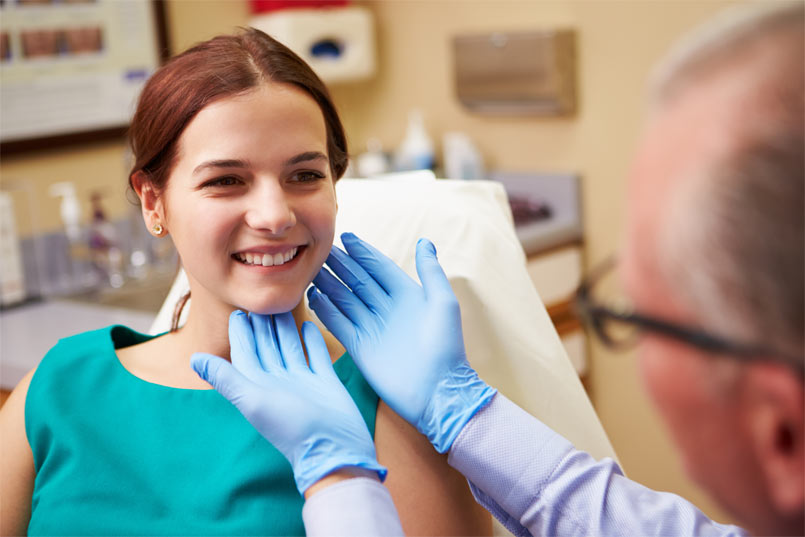The health of your skin is incredibly important. How your skin looks can have a big effect on your confidence and self-esteem. Therefore you want to be very selective when choosing a dermatologist. Dermatologists can specialize in different areas of dermatology but most will have knowledge of all dermatological conditions.
If you’re looking for a dermatologist in the Sarasota area then this article will help you understand exactly what to look for in a dermatologist and how to choose the right dermatologist for you.
Below are 6 key things to look for in a Sarasota dermatologist.
1. A flexible approach
A good dermatologist should have an open mind and be able to suggest multiple solutions for your particular problem. Skin problems can be very complex and therefore what works for another person may not work for you. Having a dermatologist treat your skin as though it’s the same as everybody else’s will not offer a solution to your problem and could prevent you from receiving the treatment you need. This is why it’s so important to find a dermatologist who has a flexible approach and is willing to try different treatments for your skin to find the one that is most effective.
2. An easy going manner
Skin problems can be quite a personal and emotional subject for a lot of people, particularly those who have suffered with serious skin conditions for a long period of time. They can impact on confidence and self-esteem and can prevent some people living life to the fullest because they feel that their skin condition holds them back. This being the case, you want to find a dermatologist who is very easy to talk to and who is understanding of your particular situation. They should be able to listen to how your skin condition makes you feel and provide you with a treatment plan that will prevent the condition from continuing. You should be able to feel comfortable and at ease having these conversations with your dermatologist.
3. No rush at your appointments
When you visit a new dermatologist for the first time, there’s a good chance that you’ll have a lot of things you’ll want to discuss. Because of this, you certainly don’t want to feel that you’re rushed in any way or feel that the dermatologist isn’t giving you their full attention. You are the client and your skin conditions should be important to your dermatologist. Make sure that your dermatologist will listen to your problems and provide you with a treatment plan that’s tailored to you. If your dermatologist has their eye on the clock or they simply dismiss your thoughts on the best type of treatment, then you should probably look elsewhere. If they’re rushing you during your first appointment, it’s most likely that they will rush your treatments and future appointments as well.
4. No sales pitch
A dermatologist’s main focus should be to help you achieve optimum skin health and deal with any outstanding problems that you’re dealing with. This means that they should only be recommending the products and treatments that are suited to your skin type and will aid in the recovery of your skin. If your dermatologist or their staff are pushing treatments and products that you don’t feel you need, then there’s a good chance they are more interested in your money than actually helping you. This is a major sign of a dermatologist that isn’t going to put your needs first. In this situation, the best option would be to go to a different dermatologist.
5. After-hours availability
Being able to contact your dermatologist when you need them most is incredibly important. If you’re experiencing an allergic reaction to a particular treatment and aren’t sure what to do or you have a pressing question that can’t wait until your next appointment, then you should always have the option to be able to get in touch with your dermatologist. This gives them the opportunity to advise you on the best solutions and enables you to keep looking after your skin. If left untreated or not seen to quickly, allergic reactions can cause damage to the skin, in turn, undoing the positive effect your treatments have had on your skin. It’s best to find out early on rather than finding out later that you can only contact your dermatologist during office hours.
6. Board Certifications and Fellowships
Board certifications and fellowships usually indicate extensive study and good practice. Dermatologists that are associated with or involved with the American Society for Dermatologic Surgery and the American Academy of Dermatology are deemed to be more accredited. Both of these boards provide proof that a dermatologist is up to date with the latest dermatological treatments and procedures. In order to become a fellow with the American Academy of Dermatology, dermatologists must be certified by the American Board of Dermatology.
What condition do you have?
If you are already aware of what type of skin condition you have, the best option might be to see a dermatologist that specializes in that specific area of dermatology. They will be able to discuss the treatments that are likely to work for you. If you’re unsure what skin condition you have, seeing a dermatologist that is qualified in all areas of dermatology will help. They will have the ability to diagnose your condition and give you advice on your treatment options.






